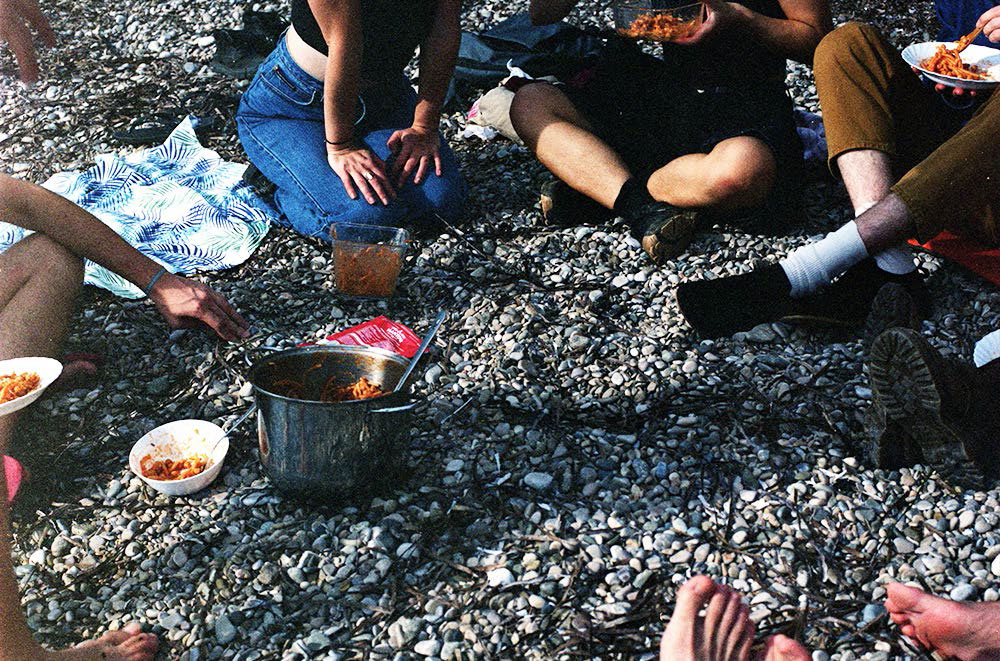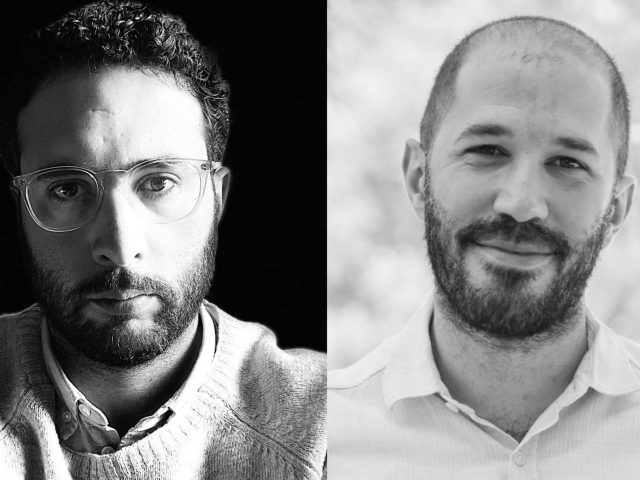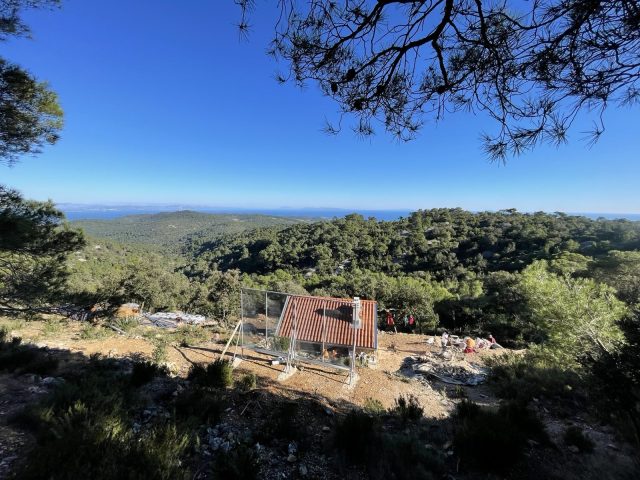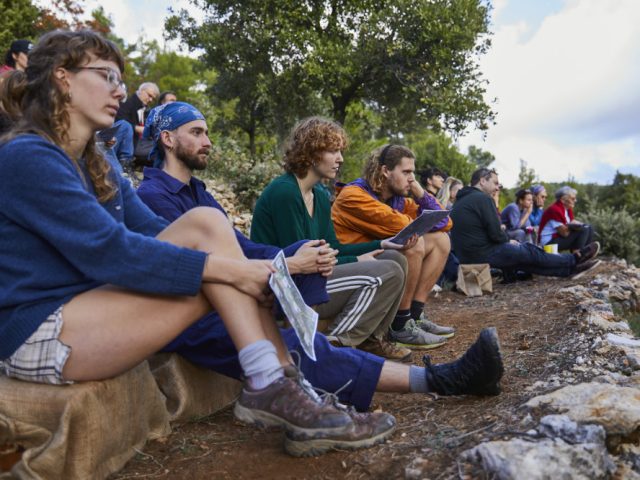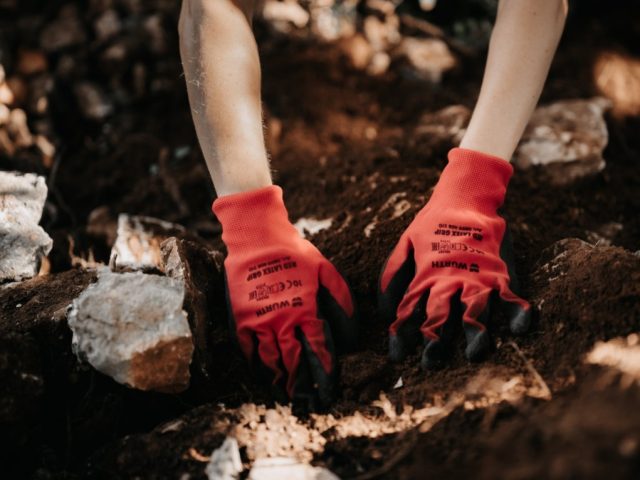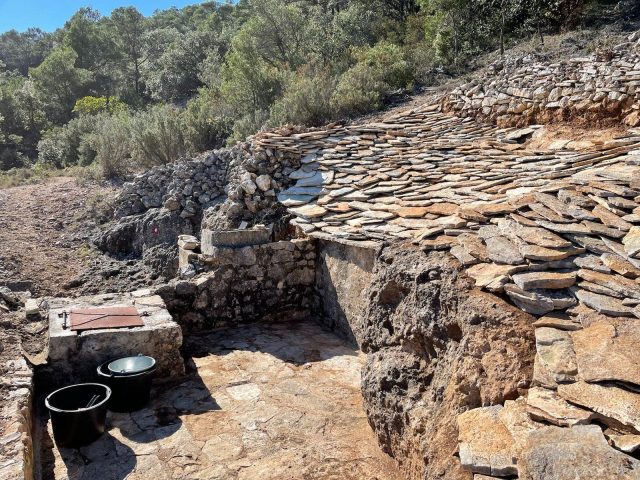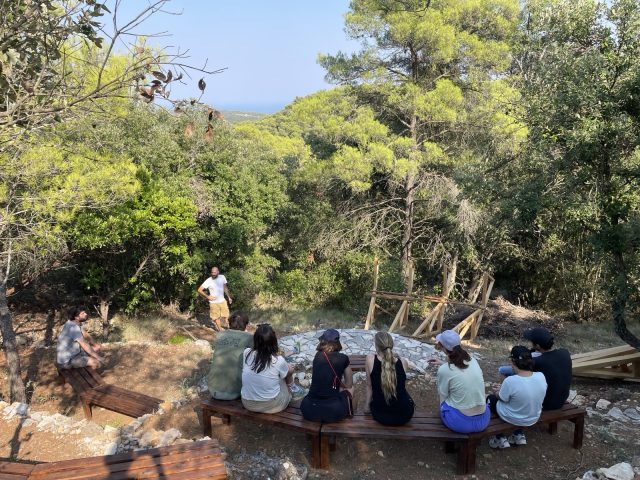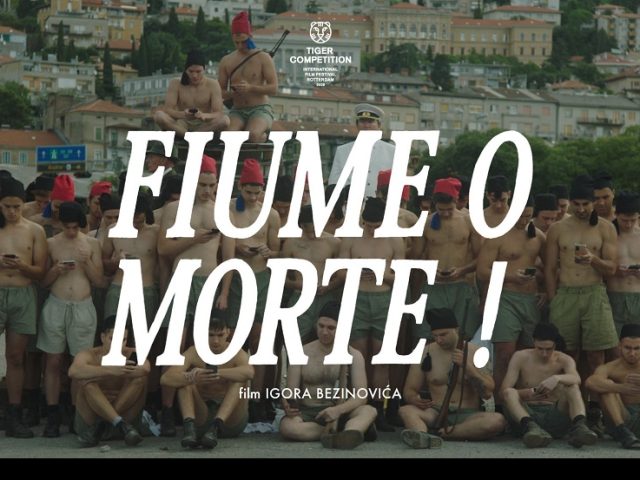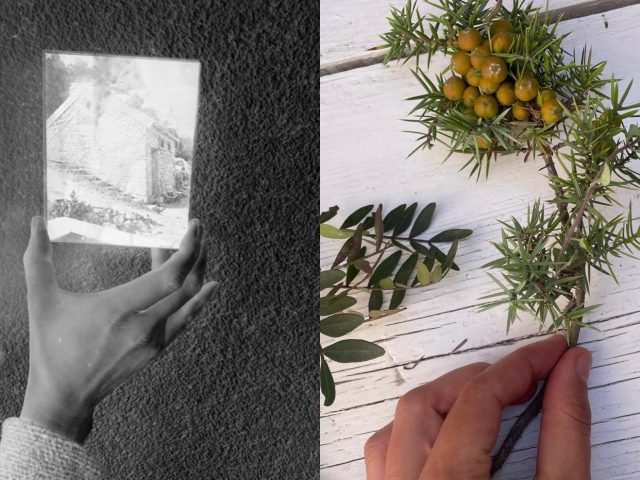From the 4th to the 9th of October, 2024, ISSA (Island School of Social Autonomy) facilitated a collective building action and series of lectures, workshops, and discussions in Vis, guided by the central theme of To Live Together. The aim was to build new ways of “being, living, and learning together beyond the ruins of capitalism” and provide an embodied “platform for contemplating a different world.”
The essay by Klara Debeljak was originally published in Makery.info on November 13, 2024, as part of the Rewilding Cultures series – a cooperation program co-funded by the European Union
A community has been brewing on the island of Vis, one of the most distant islands in the Adriatic Sea off the coast of southern Croatia. The Island School of Social Autonomy or ISSA, located above the village of Komiža on the western part of the island, is a recently formed organism. Spearheaded by the Croatian philosopher Srećko Horvat, it is a sprawling community of mostly Balkan artists and activists who collectively bought and are working on restoring three hectares of desolate land and previously uninhabited mountainous green terrain. ISSA is an old stone house, a small construction site, a group of friends, an extended community, and a network.
Before I attended the ISSA To Live Together conference, I was talking with a few friends about going. Some of them knew about it because of the involvement of the Italian philosopher, Franco Bifo Berardi. Some knew about it through the grapevine, and some knew about it because Pamela Anderson is listed as a donor on the website. One acquaintance laughed and said; “The School of Social Autonomy? Isn’t that a bit of an oxymoron?” Later on the ferry ride, as I watched the sun dip into the sea and felt the mainland retreating behind my back, his question stuck in my head.
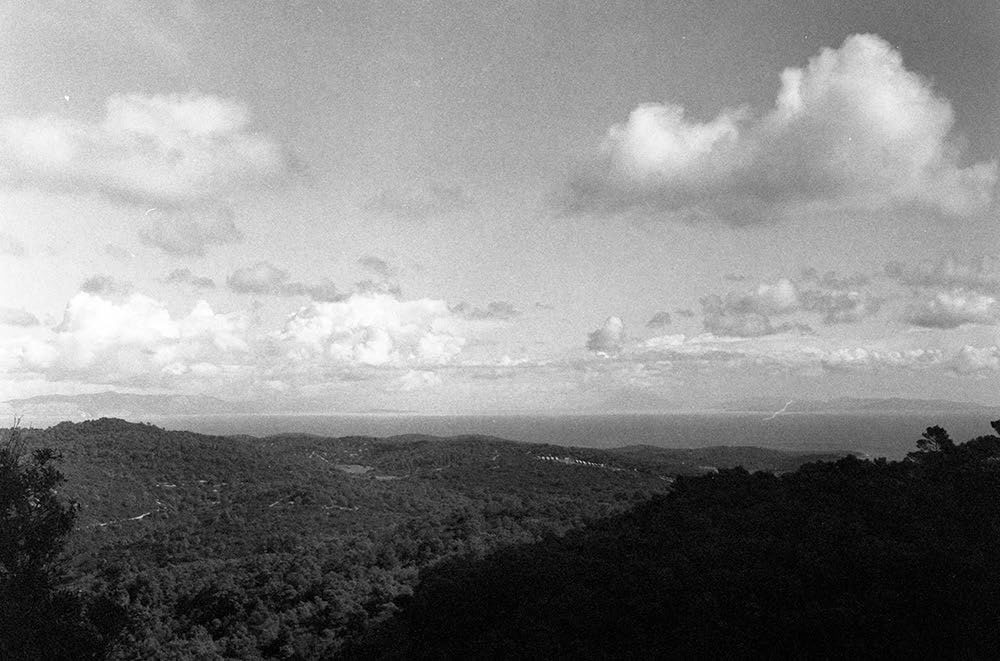
The school in the name of Island School of Social Autotnomy is not glided over, nor is it a stand-in word to represent the conference-type structure of the program. It is an integral part of ISSA’s ideological positioning inspired by Ivan Illich’s book Deschooling Society (1971) and his claim that the contemporary educational system has turned into an “advertising agency that makes you believe that you need the society as it is”. The notion of social autonomy is not divorced from the notion of pedagogy, and learning with and from each other. According to Paulo Freires Pedagogy of the Oppressed, one of the inspirations of ISSA, the learner is to be treated as a co-creator of knowledge. Many of the lecturers at the ‘conference’ are members of the ISSA organism, or have started their own similar, perhaps more private initiatives such as James Bridle, a British artist and writer who is based on an island in the Aegean Sea. The search for autonomy as a political strategy and a model for social organization is a recurring idea at ISSA. It is closely linked with the nature of islands as isolated and hermetic spaces, spaces where people inscribe their desires and grow them patiently, in the process integrating with the existing topology. ISSA’s location is thus both a geographic and metaphorical stance: “We believe that the future lies in archipelagos of autonomy.”
The idea of self-management as a framework has been consistently present in the history of island schools nurturing subversive discourse and activity. ISSA in its current form gives a nod of respect to the summer school of Korčula, founded in the 1960s on a nearby island in the former federal state of Yugoslavia. The historic summer school and the journal it birthed, Praxis, a Marxist-humanist journal, was commemorated in the panel talk entitled The 60th Anniversary of Praxis, and included Nadežda Čačinovič, Boris Buden, Ankica Čakardić, and Mira Oklobdžija all of whom were directly involved in the Korčula summer school. The Korčula summer school encounters that took place during the 1960s were crucial meeting points for philosophers worldwide including Ernst Bloch, Jürgen Habermas, and Predrag Matvejević, bringing together social critics from the western and eastern blocs. Throughout the five days of ISSA and during this particular panel, a simmering need to continue and expand upon this tradition beyond the logic of identity and the hegemonic discourse on the past could be felt.
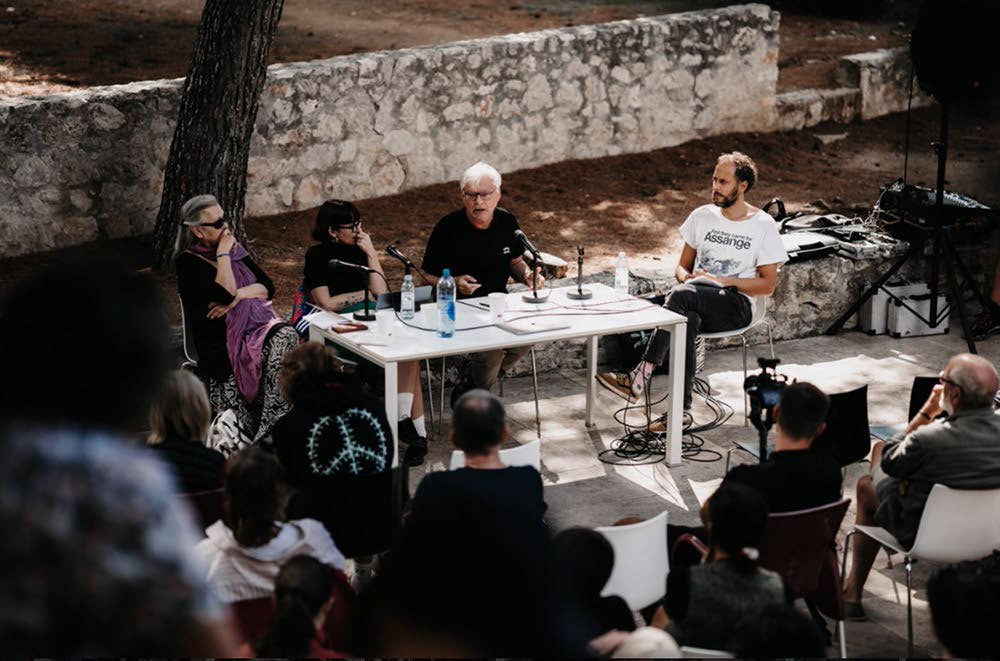
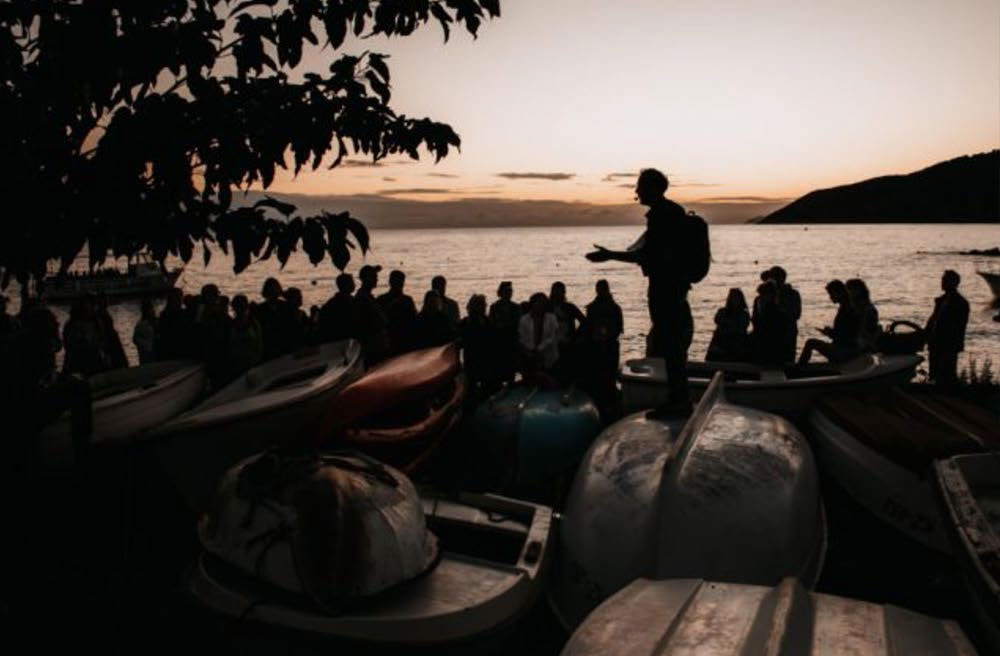
As Boris Buden put it: “Dealing with the past makes sense only in the ability of us to take the past in our hands and affect the present.” The cultural heritage of Praxis proposed that these particular isolated spaces dedicated to critical thought towards existing infrastructures of property and social relations as well as simple collective leisure, took shape in ‘Dyonisian Socialism.’ Praxis and the Korčula summer school were informed by the idea that thinking must transcend the scope of academic institutions and nurture the singularity of multitudes rather than promoting a single monolithic school of thought: not a global revolution but many small local utopias. The ritual of meeting on the beaches in the late afternoon and drinking and talking was an important part of the Korčula summer school and was continued at ISSA, where initiatives such as Memory of the World, Chto Delat, Forest University, and Aventura presented their practices during the school on the beach sessions. Most of the two hundred participants that attended the current and second iteration of ISSA were activists, journalists, artists, and researchers working on parallel and often interlinked initiatives spanning multiple continents. Casual conversation merged with political critique and speculation ebbed and flowed with the waves.
Although it was not specifically mentioned, I couldn’t help but return to the concept of the archipelago and Edouard Glissant’s theory of archipelagic thinking. The theory of archipelagic thinking originates from the violently colonized scattering of islands in the Carribean, and the dissident philosophical thinking produced there, an arguably different context than the briefly colonized island of Vis that retained its language. Nevertheless, there are similarities in archipelagic thinking, marked by unpredictability, multiplicity-in-oneness, and ambiguity. It calls for an “insurrection of the imaginary faculties” aspiring towards innovative ways of conceiving the world, and resonates in many of the conversations echoing across ISSA and the Praxis journal before it.
Mira Oklobdžija, a panelist in the Praxis discussion, referred to a philosopher who had also reflected from the shores of an island: Aristotle and his definition of three forms of knowledge — theoria, poiesis, and praxis. She outlined some interesting digressions in the two generations of the Croatian summer schools, pointing out that ISSA is more activistic and anchored in praxis than the journal Praxis ever aspired to be. An audience member quipped that perhaps in ISSA, the poetry is precisely in the praxis, and this rings true to the guiding motto of ISSA; “We build the school, and the school builds us.”
Two days of ISSA were dedicated to restoring and expanding the old stone building or school nestled in the Vis hills, which will constitute the main hub of ISSA activities. During the days of To Live Together, the regular working force (usually just a few people) at the construction site swelled to a hundred or more, and work that normally took months was accomplished in two days. We carried wooden planks up the mountain and sanded them to construct the large terrace, and participated in a workshop on how to build traditional, terraced stone walls, a practice called dry stonewalling. This technique is so essential on the islands of the Adriatic that it has been included as an UNESCO intangible heritage of mankind. The workshop was led by Igor Mataić, a doctor of science specializing in geotechnics and environmental engineering who is also part of the Pomalo association, a cultural and action-based initiatives NGO on Vis dedicated to protecting the natural environment and sustainable life on the island. We learned where to place the larger anchoring boulders and how to fill in the gaps with smaller stones, making a type of wedge in the sloped side of the hill. The technique doesn’t need any adhesive or cement but relies on viney vegetation to slowly grow in the gaps of the larger stones, through the earth and pebbles, and hold the wall in place over time.
The incline of the mountain is consistently incorporated into the sustainable design of the school. The circular water system (as a convivial tool) demonstrated various ways of water circulation and collection. We were introduced to the construction of a large sloped surface of layered flat stones behind the house, dedicated to collecting and filtering accumulated rainwater. There is an adjacent fog collector project that catches mist and helps it to liquefy, dripping down into basins at the bottom of the fence-like structure.
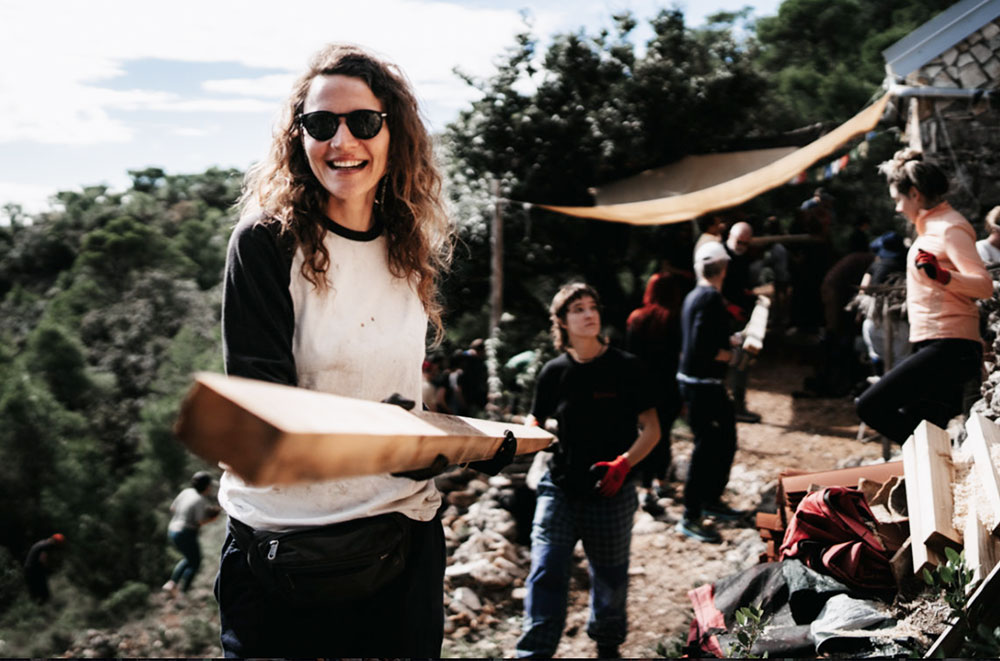
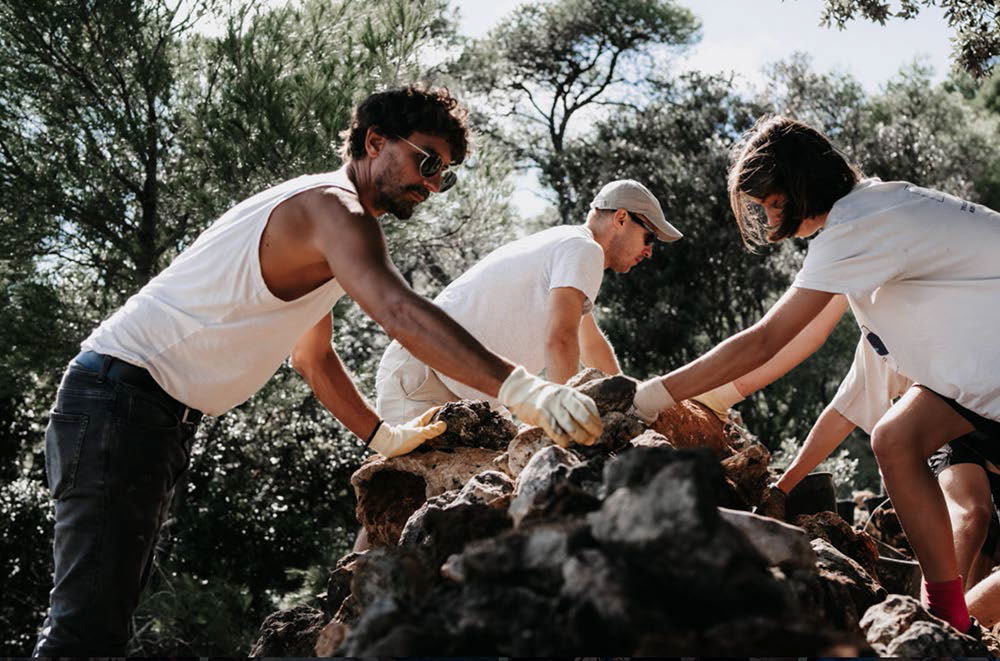
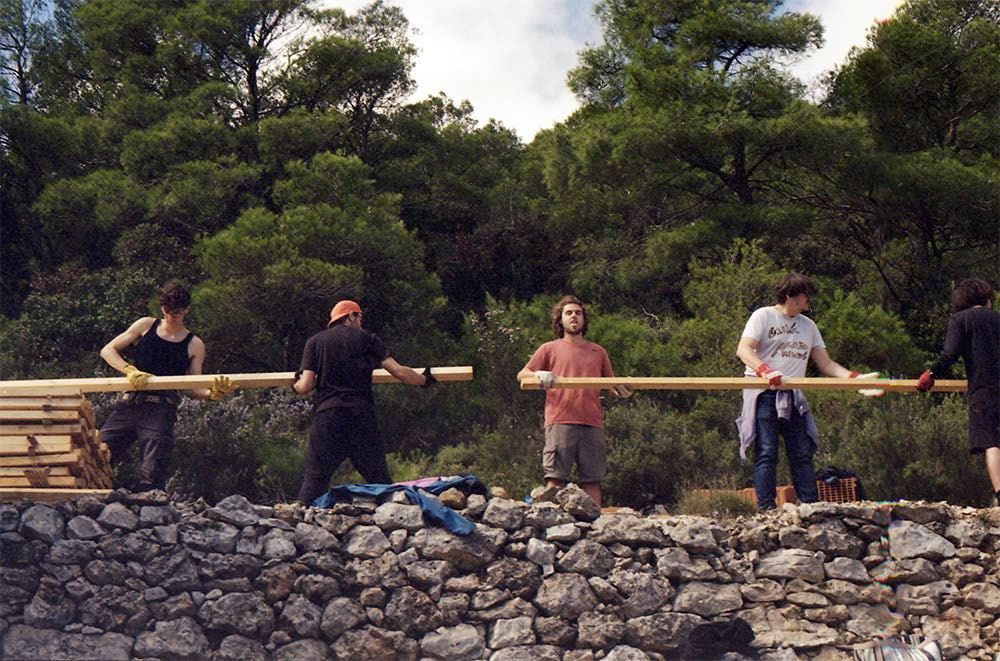
At some point in the day, we saw a line of people walking up the mountain in single file, the first in the line carrying a large pole with a Wifi antenna at its top, looking for a good position to catch the available wifi and route it down to the house. It looked like a religious march in search of connection. Autonomy and self-management do not mean isolation. This initiative was the responsibility of !Mediengruppe Bitnik, an artist duo, and two core members of the ISSA collective who anchor the islands initiative as a practice of embodied tactical media. The co-founders of the Berlin-based collective originate from Vis and Zurich, and deal with reinterpreting urban technological systems that are not meant to be interacted with, utilizing “deliberate loss of control as a means to question established structures.” “When did we agree to these systems layered on top of society?” they asked in their lecture later in the week, describing their impressive opus of playful interferences. They rendered glitched photographs of urban architectural elements into the original stone structures and infiltrated the Zurich opera with phones that randomly dial citizens and transmit usually inaccessible audio, entangling interference with translation. In the spirit of tactical media, they not only initiated the Wifi antenna but also led a workshop titled Your Own Private Pirate Radio Station teaching participants how to assemble a predesigned FM transmitter circuit board to be used as a tactical tool, an artistic device, and a medium of communication. Participants constructed their own pirate radio stations, and, while edging around the law, achieved communicatation in a relatively local but useful radius.
The workshop For a Global Mutiny Against an Empire of Negligence led by the Pirate Care collective, resonated theoretically both with the act of making private radio stations and with the core principles of ISSA. Pirate Care is a research project and a network of activists, scholars, and practitioners who stand against the criminalization of solidarity. Pirate Care was introduced as a concept inspired by the hybrid figure of the pirate in his/her/their militant glory and autonomy, and the invisibility of the renegade figure of revolt. The pirate carer aims to address unequally distributed care, thus breaking empirical strongholds by repositioning knowledge production. In this sense, care is conceptualized as a militant and direct action practice and a partisan terrain of struggle. The concept of pirate care is grounded in its defining elements of breaking the law and claiming disobedience, critical usage of technology, communing private property and partisan knowledge and learning, queering kinship, and federating practices. Ultimately, pirate care unites anarchist legacies by aligning the vocabularies of diverse movements (such as Marxist & Eco Feminist) and federating fragmented pirate care initiatives. The wish to align vocabularies recalls the Praxis panel talk in which the concept of self-management was repositioned as an essentially anarchist framework rather than a communist legacy, thus interrogating the ownership of definitions.
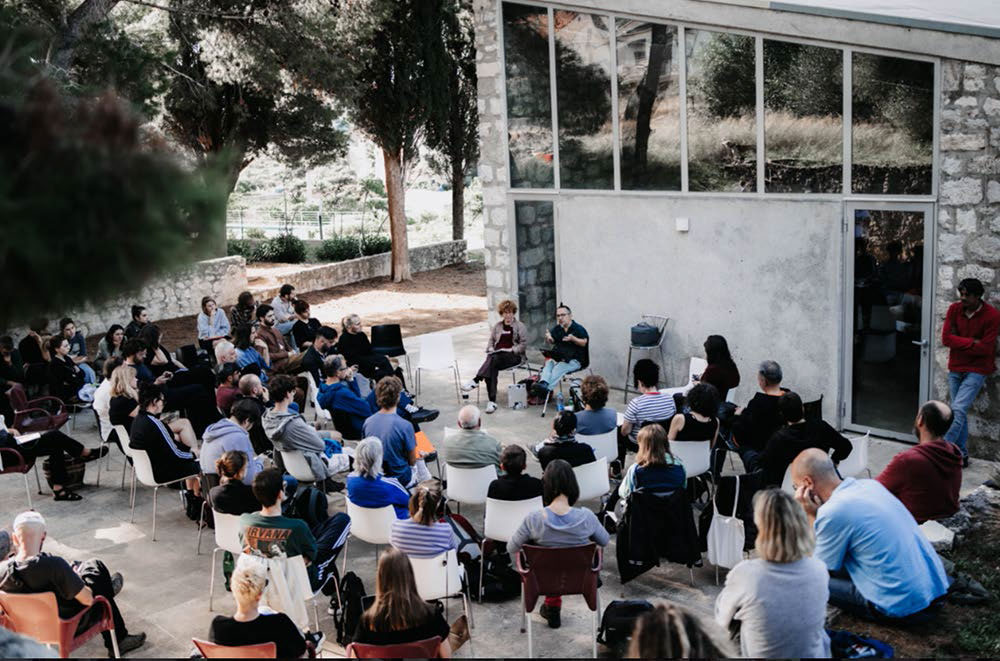
The idea of a federation is deeply important for the pirate carers and a concept that is too often forgotten in our leftist spaces. The pirate carers cultivate a profound suspicion towards positions of morality that frequently digress into judgment. Perhaps that is why, as a participant stated later in the day, contemporary political spaces are filled with “leftists who are looking for a political home where there is none”. Thus the Pirate Care Collective works with other people’s practices of care, even though they do not necessarily agree with their politics, consequently federating common struggles and unions. This type of activation is essential as a subversion of the often unnoticed “elite capture” and co-option of renegade academic discourse and trickle-down activism. Olúfẹ́mi O. Táíwò, in his recent book Elite Capture: How the Powerful Took Over Identity Politics (And Everything Else), states that elite capture is what “stands between us and a transformative, nonsectarian, coalitional politics.” Federating, allyship, and a possible political home for the future left represent a strong undercurrent of thought accompanying the wide breadth of activities at ISSA.
The Pirate Care Collective facilitated a playful and simultaneously dystopic workshop. We were presented with the scenario of being stuck on the island because the mainland had suffered an acute breakdown of infrastructure and civil society. We were then divided into groups and challenged to take roles based on our capabilities of care and assistance. What would we do first? Who does what? Who and what should we take care of? A challenging exercise as you can imagine since it is always the case in such settings that there is an under-representation of engineers, doctors, and herbalists, and an overrepresentation of writers and painters. Nevertheless, throughout the exercise, we realized that skills that are not always valued, such as cooking and emotional perseverance, are essential in small utopias. What will always be needed is clear and calm communication, humor, and (pirate) care, all skills that we expanded during the ISSA conference.
James Bridle, artist and technologist who moved to an island in the Aegean, spoke of his experiments with fog collectors and water purifiers during his lecture and his delight that the ISSA team was developing the same knowledge. Bridle was playful, speaking about the interconnectivity of the world on a metaphysical and organic level rather than an infrastructural and extractivist level. He talked about the hearing of plants and the dancing of bees as active sensory participants in the world and described the solar community of which he is a member on the island where he lives. A solar community provides access to energy for member households through an autonomous solar grid, literally and metaphorically redistributing power through self-management. Power communities are increasingly common, yet remain especially important to islands that are at bigger risk of being isolated from the main power grids of the mainland. “What was considered the periphery is actually the future,” explained James. The peripheries of the islands are places to prototype and experiment both because they are experiencing the climate conditions of the future and because of the archipelagic poesis ingrained in their seclusion and immersion.
Sylvia Federici, an Italian feminist, activist, and writer, addressed us by Zoom in the beautiful, sculpted stone movie theatre in Komiža. She said we must work on “rebuilding the commons and inventing new ways of being together. Crucial as a form of self-defense is expanding our imagination — the new world will not burst out of our head like Minerva from the head of Zeus. It will follow a period of experimentation, breaking with the isolation of the individualization of society, where we don’t confront capitalism alone. We do it in our everyday life by changing how we reproduce life and ourselves.” The ISSA School of Social Autonomy attempts just that, by experimenting and weaving ancestral knowledge with a multiplicity of contemporary and historic schools of thought leaving us all with a profound sense of community, excitement, and hope. When I returned to the depressing and apathetic private conversations of everyday urban life in a capital city on the mainland, I encouraged my friends to join us on the island of the future, where the effects of building and learning together are collective, invigorating and visceral.
